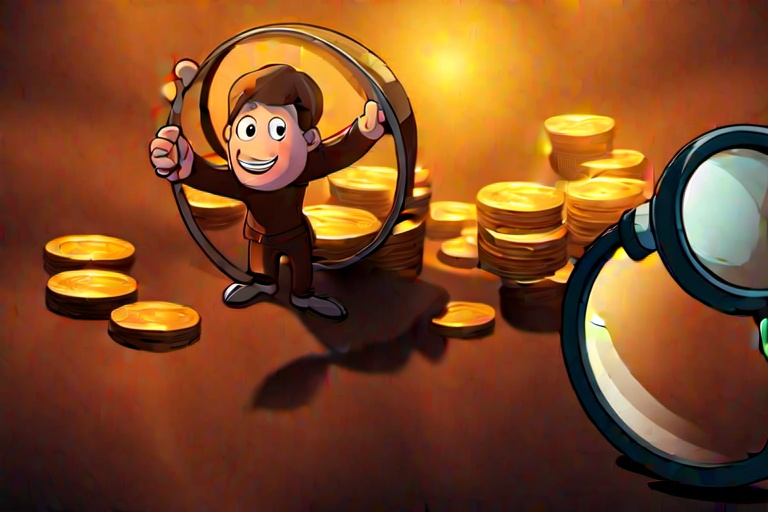Are you pondering the sale of your old coins and feeling overwhelmed about where to start? Don't worry—many who are inexperienced with the intricacies of coin collecting face similar challenges when trying to secure the best value for their items. This comprehensive guide aims to arm you with the necessary knowledge to not only sell your coins but to do so with confidence, ensuring a fair and satisfactory transaction.
Are you pondering the sale of your old coins and feeling overwhelmed about where to start? Don't worry—many who are inexperienced with the intricacies of coin collecting face similar challenges when trying to secure the best value for their items. This comprehensive guide aims to arm you with the necessary knowledge to not only sell your coins but to do so with confidence, ensuring a fair and satisfactory transaction.
Understanding Coin Rarity and the Red Book
To kick off the selling journey, determining the rarity of your coins is paramount. The Whitman "Red Book" or A Guide Book of United States Coins can offer an insightful starting point. This book provides an overview of coin rarity and a baseline for their potential value. While market prices fluctuate, the Red Book can help you discern your coin's particular scarcity by comparing it with others from the same year or series.
Handling and Coin Condition Assessment
Proper coin handling is key as coins are sensitive to additional wear, and scratches can drastically reduce their appeal and value. It is strongly advised never to clean old coins since doing so can strip away their natural patina, making them less attractive to collectors and subsequently depreciating their worth.
Once you've cataloged your coins, an evaluation of their condition is in order. Services like the Professional Coin Grading Service (PCGS) can appraise your coin and assign a condition grade. A conservative approach is recommended when estimating grades yourself; if uncertain, opt to round down the condition to avoid overestimation.
The Importance of Grading and Authentication
It’s worth considering getting your coins certified. An official grading by organizations such as the Numismatic Guaranty Company (NGC) or the PCGS represents that an expert has authenticated and evaluated your coin. A certified graded coin is sealed within a protective case that clearly displays its grade and relevant details. Graded coins often attract higher prices due to the increased assurance of their condition and authenticity.
Researching Coin Values
Armed with knowledge about the condition of your coins, it's crucial to research their worth. The Certified Coin Dealer Newsletter (CDN Greysheet) offers a comprehensive listing of retail values for U.S. coins for each grade. Remember, these are guidelines; actual local selling prices might differ, and selling to a dealer typically yields the wholesale value.
Selling Venues: Coin Shops, Online Marketplaces, and Coin Shows
Choosing an appropriate selling avenue is crucial, as various coins may excel in different markets. Local coin shops cater well to selling a spectrum of old coins, from everyday Wheat cents and Buffalo nickels to more scarce silver coins. It pays to vet these establishments—look for reviews or seek recommendations to find trustworthy dealers.
Alternatively, online options, like auction sites or specialized coin platforms, beckon with their vast reach and potential for competitive bids. Always practice diligence when selling on such forums to avoid the pitfalls of insincere buyers.
Coin shows and conventions present marvelous platforms for face-to-face interactions with interested collectors and dealers. These events cater to a wide array of coin enthusiasts and are ideal for those looking to sell unique or specific types of coins.
Receiving and Evaluating Offers
Upon receiving offers, it's important to take stock of factors such as the buyer's reputation, their professional expertise, and the convenience of the proposed payment options. Selling coins is akin to negotiation; there is room for dialogue, and you have the right to reject any offer that doesn't align with your expectations.
Considerations for High-Value Coins
If you’re in possession of a coin you suspect to be of particular value, having it graded by NGC or PCGS may be highly advantageous. Auction houses like Heritage Auctions and Stack's Bowers, which specialize in coins, can help expose your graded coin to a wider, more informed audience and possibly fetch a better price.
For online sales, platforms such as Gainesville Coins offer a way to sell your coins through an established online vending system, complete with secure storage and additional services.
Avoiding Suboptimal Selling Scenarios
Familiarize yourself with places that may not offer you the best deals. Beware of pawn shops, jewelry stores, and "We Buy Gold" establishments that may not fully appreciate your coin's true numismatic value. Also, be cautious of impermanent "hotel room" buyers who may be targeting uninformed sellers.
Junk Silver: An Alternative Venture
For those interested in both coin collecting and silver investing, "junk" silver—U.S. coins minted before 1965 composed of 90% silver—holds allure due to its metal content instead of numismatic value. These coins retain popularity and can be sold with relative ease to most coin and pawn shops, typically at prices reflective of their silver content.
The Path Forward
As you stride forward on your coin selling path, remember that coin collecting can be both enjoyable and a potential generator of financial gain. Not every old coin holds significant market value, as factors like rarity, condition, and desirability in the current market greatly influence worth. Embracing the knowledge imparted by experts and reliable resources will boost your ability to make informed decisions. Above all, bear in mind that awareness and preparation are the cornerstones of achieving triumphant outcomes in your coin selling endeavors.
Information for this article was gathered from the following source.




